 To enjoy the best possible cup of coffee at home, make sure your coffee is always fresh.
To enjoy the best possible cup of coffee at home, make sure your coffee is always fresh.
Coffee is perishable. Coffee beans begin to lose their freshness soon after they are roasted. As coffee loses freshness, its natural flavors and aromas are diminished. So, all things being equal, the sooner the beans are used, the better the coffee.
Properly stored, coffee beans will stay good for about a month after roasting. Ground coffee will last for one to two weeks after roasting. Why the difference? Ground coffee has much more surface area than coffee beans. That means ground coffee will be more susceptible to the four enemies of fresh coffee: air, moisture, heat, and light.
One way to make sure you’re drinking fresh coffee, of course, is to buy unroasted green coffee beans and roast them yourself. Unroasted beans will stay fresh for a year. With a little work, it is certainly possible to roast coffee at home. But that requires a lot more time and effort, obviously, than making a pot of coffee from pre-roasted coffee, either whole bean or ground.
So, assuming you’re not going to roast your own beans, how do you give yourself the best chance for a great, fresh cup of java?
Buy less, more often
Buy freshly roasted coffee or coffee that has been packaged for optimal freshness after roasting. Valve-sealed bags typically preserve freshness better than other types of packaging. Coffee beans release carbon dioxide for up to a week after roasting. Newly roasted coffee beans can be packaged in valve-sealed bags without aging, immediately after roasting. The one-way valve allows carbon dioxide to escape but does not let oxygen in.
Always buy coffee in an amount that you expect you’ll drink within its “freshness window.” If you’re buying whole bean coffee, buy only the amount you expect to use within a month. Then grind only as many beans as you need, just before your brew your coffee. If you’re buying ground coffee, purchase enough for a week or two at most.
Store coffee away from air, moisture, heat, and light
How to store coffee to keep it fresh? The key is to keep the coffee — whether whole beans or ground — away from the four agents of deterioration: excessive air, moisture, heat, and light.
Keep the air out
Once you’ve opened a package of coffee, don’t leave it in the package. Instead, store it in an air-tight container. Minimize air space in the container as much as possible.
Ordinary kitchen canisters can do an acceptable job if they can be tightly closed and there is little air space along with the coffee. But for better results, use a specially designed air-tight coffee storage container, such as the Friis Coffee Vault™![]() or the BeanSafe® coffee canister
or the BeanSafe® coffee canister![]() . These containers have air-tight seals to keep air out, along with one-way valves to let carbon dioxide escape. (For more information about the Friis Coffee Vault, see this Coffee Crossroads article.)
. These containers have air-tight seals to keep air out, along with one-way valves to let carbon dioxide escape. (For more information about the Friis Coffee Vault, see this Coffee Crossroads article.)
Avoid moisture
Coffee should be stored in a dry location. Excessive moisture will accelerate the deterioration process. Coffee that has been exposed to too much moisture may develop a sour or “off” taste and aroma.
For this reason, it’s not a good idea to store coffee in the freezer or refrigerator. Condensation may develop when the door is opened and closed. You may not encounter a moisture problem if you store small quantities of coffee in the freezer in air-tight containers. But freezer storage doesn’t extend the shelf life. And once you remove coffee from the freezer, don’t put it back. A freezing-thawing cycle is guaranteed to introduce moisture.
Keep your coffee away from heat until you brew it
Although you don’t want to store your coffee in the freezer or refrigerator, you do want to keep it cool. Too much heat will also accelerate the breakdown of the coffee’s flavor.
If you store coffee in a kitchen cabinet or on the kitchen countertop, be sure it’s not near the stove or the oven. Likewise, avoid sunny locations such as shelves near a window.
The time to add the heat is when you brew the coffee — not before!
Even light roasts prefer the dark
Coffee beans look beautiful in a glass canister. Displaying several different roasts in different shades of color is especially appealing.
Unfortunately, light is also an enemy of fresh coffee. So glass containers are not a good coffee storage option, unless you keep the canisters out of sight in a pantry cabinet or in another space away from the light.
Opaque containers are a much better solution. If you store your coffee in an opaque canister, you can keep it handy on a countertop or in another convenient place without worrying about deterioration from light.
To get the best possible protection against the four enemies of fresh coffee — air, moisture, heat, and light — try one of the specially designed coffee canisters or “coffee vaults” with an air-tight seal. They keep out air, moisture, and light. If you put them in a place that’s not too close to heat, you’ve got everything covered.
Knowing how to store coffee to keep it fresh is not rocket science. But buying the right amount of coffee and storing it correctly will go a long way towards giving you a great tasting cup of coffee.
Disclosure
Coffee Crossroads has an affiliate relationship with Amazon.com and other merchants whose products or services are featured on this website. The publisher receives a small fee or commission for sales generated via links from the site. The fee or commission does not increase the price of the sale. For more information, see the Disclosures page. Thank you for supporting Coffee Crossroads!

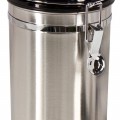
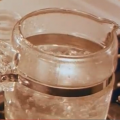


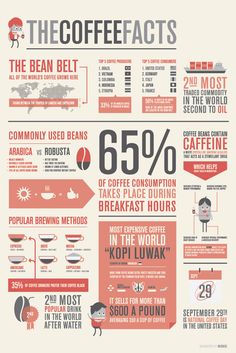


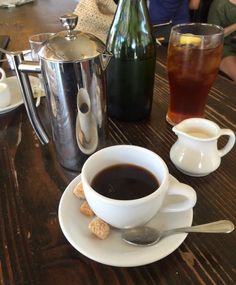
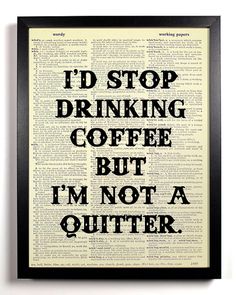
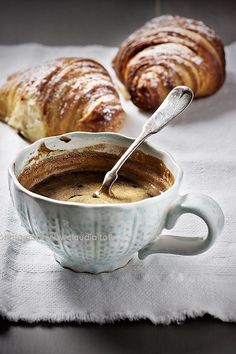





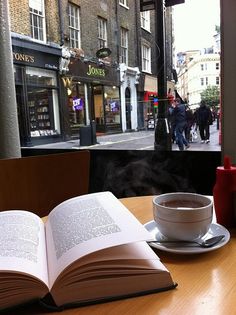

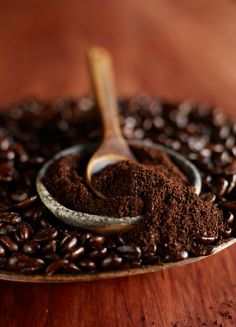

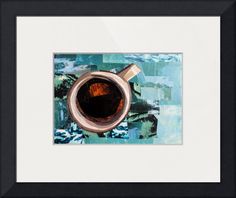

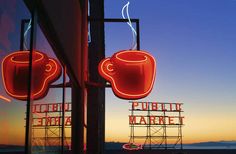






I love using coffee storage canisters. These pots help prevent losing the aroma and freshness of the coffee by making it air tight. The feature of making this jar air tight is partial compared to other alternatives as though new air does not entre due to the rubber ring around the lid but the one that has already entered the jar during usage remains. Therefore, there is no long time guarantee to keep your coffee fresh.
You’re right that coffee shelf life is limited under the best of circumstances. But the sealed canisters, especially the vaults with carbon dioxide venting valves, like the Friis Coffee Vault, do a very good job of preserving freshness for a reasonable time period.